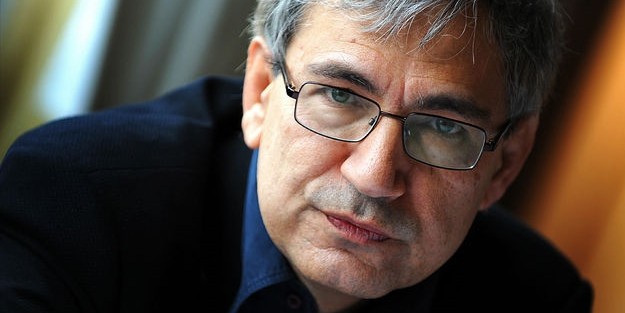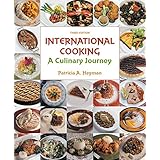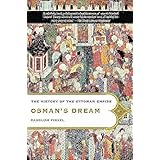Novelist (b. 1952, İstanbul).
Ferit Orhan Pamuk (born 7 June 1952) is a Turkish novelist, screenwriter, academic and recipient of the 2006 Nobel Prize in Literature. One of Turkey’s most prominent novelists, his work has sold over thirteen million books in sixty-three languages, making him the country’s best-selling writer.
He was brought up in Nişantaşı. He attended Robert College (1970) in İstanbul and then İstanbul Technical University, Faculty of Architecture for some time. He graduated from İstanbul University, Institute of Journalism (1977). He did his postgraduate studies at the institute he graduated from. At twenty two, he gave up everything and took up writing as his sole occupation.
Novels (English)
The White Castle, translated by Victoria Holbrook, Manchester (UK): Carcanet Press Limited, 1990; 1991; New York: George Braziller, 1991 [original title: Beyaz Kale]
The Black Book, translated by Güneli Gün, New York: Farrar, Straus & Giroux, 1994 [original title: Kara Kitap]. (A new translation by Maureen Freely was published in 2006)
The New Life, translated by Güneli Gün, New York: Farrar, Straus & Giroux, 1997 [original title: Yeni Hayat]
My Name Is Red, translated by Erdağ M. Göknar, New York: Alfred A. Knopf, 2001 [original title: Benim Adım Kırmızı].
Snow, translated by Maureen Freely, New York: Alfred A. Knopf, 2004 [original title: Kar]
The Museum of Innocence, translated by Maureen Freely, New York: Alfred A. Knopf, was released on 20 October 2009 [original title: Masumiyet Müzesi]
Silent House, translated by Robert Finn, New York: Alfred A. Knopf, 2012 [original title: Sessiz Ev]
A Strangeness in My Mind, translated by Ekin Oklap, New York: Alfred A. Knopf, 2015 [original title: Kafamda Bir Tuhaflık]
The Red-Haired Woman, translated by Ekin Oklap, New York: Alfred A. Knopf, 2017 [original title: Kırmızı saçlı kadın]
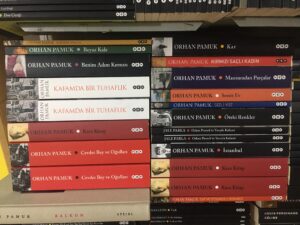
Non-fiction (English)
Istanbul: Memories and the City, translated by Maureen Freely, New York: Alfred A. Knopf, 2005 [original title: İstanbul: Hatıralar ve Şehir]
My Father’s Suitcase [original title: Babamın Bavulu] Nobel lecture
Other Colors: Essays and a Story, translated by Maureen Freely, New York: Alfred A. Knopf, 2007 [original title: Öteki Renkler][87]
The Innocence of Objects [original title: Şeylerin Masumiyeti]
The Naive and Sentimental Novelist, Harvard University Press, 2010
Balkon, Steidl Publisher, 2019
Turkish
Novels
Cevdet Bey ve Oğulları (Cevdet Bey and His Sons), novel, Istanbul: Karacan Yayınları, 1982
Sessiz Ev (Silent House), novel, Istanbul: Can Yayınları, 1983
Beyaz Kale (The White Castle), novel, Istanbul: Can Yayınları, 1985
Kara Kitap (The Black Book), novel, Istanbul: Can Yayınları, 1990
Yeni Hayat (The New Life), novel, Istanbul: İletişim Yayınları, 1994
Benim Adım Kırmızı (My Name is Red), novel, Istanbul: İletişim Yayınları, 1998
Kar (Snow), novel, Istanbul: İletişim Yayınları, 2002
Masumiyet Müzesi (The Museum of Innocence), novel, Istanbul: İletişim Yayınları, 2008
Kafamda Bir Tuhaflık (A Strangeness in My Mind), novel, Istanbul: Yapı Kredi Publications, 2014
Kırmızı Saçlı Kadın, (The Red-Haired Woman), novel, Yapı Kredi Yayınları, 2016
Veba Geceleri (tr,): “Nights of Plague” (2021)[88]
Fathers, Mothers and Sons : Cevdet Bey and Sons; The Silent House; The Red-Haired Woman (“Delta” Omnibüs, Novels volume I), Yapı Kredi Yayınları, 2018
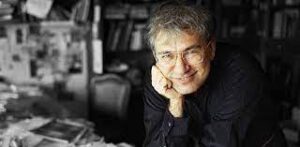
Other Works
Gizli Yüz (Secret Face), screenplay, Istanbul: Can Yayınları, 1992
Öteki Renkler (Other Colours), essays, Istanbul: İletişim Yayınları, 1999
İstanbul: Hatıralar ve Şehir (Istanbul: Memories and the City), memoirs, Istanbul: Yapı Kredi Yayınları, 2003
Babamın Bavulu (My Father’s Suitcase), Nobel Söylevi, İstanbul, İletişim Yayınları, 2007
Manzaradan Parçalar: Hayat, Sokaklar, Edebiyat (Pieces from the View: Life, Streets, Literature), essays, Istanbul: İletişim Yayınları, 2010
Saf ve Düşünceli Romancı (“Naive and Sentimental Novelist”) literary criticism, İstanbul: İletişim Yayınları, 2011
Şeylerin Masumiyeti (The Innocence of Objects), Masumiyet Müzesi Kataloğu, İletişim Yayınları 2012
Resimli İstanbul – Hatıralar ve Şehir, memoir, Yapı Kredi Yayınları, 2015
Hatıraların Masumiyeti, scripts and essays, Yapı Kredi Yayınları, 2016
Balkon, (Introduction and photographs), Yapı Kredi Yayınları, 2018
Orange, (Introduction and Photographs), Yapi Kredi Yayınları, 192 pages, 350 images, 2020
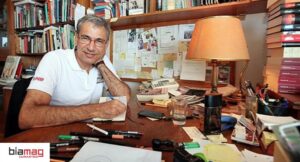
Quotes
“I read a book one day and my whole life was changed.”
— Orhan Pamuk (The New Life)
“Happiness is holding someone in your arms and knowing you hold the whole world.”
— Orhan Pamuk (Snow)
“I don’t want to be a tree; I want to be its meaning.”
— Orhan Pamuk (My Name Is Red)
“How much can we ever know about the love and pain in another heart? How much can we hope to understand those who have suffered deeper anguish, greater deprivation, and more crushing disappointments than we ourselves have known?”
— Orhan Pamuk (Snow)
“Dogs do speak, but only to those who know how to listen.”
— Orhan Pamuk (My Name Is Red)
“Tell me then, does love make one a fool or do only fools fall in love?”
— Orhan Pamuk (My Name Is Red)
“Painting is the silence of thought and the music of sight.”
— Orhan Pamuk (My Name Is Red)
“The first thing I learned at school was that some people are idiots; the second thing I learned was that some are even worse.”
— Orhan Pamuk (Istanbul: Memories and the City)
“Books, which we mistake for consolation, only add depth to our sorrow. ”
— Orhan Pamuk (My Name Is Red)
“Real museums are places where Time is transformed into Space.”
— Orhan Pamuk (The Museum of Innocence)
“In fact no one recognizes the happiest moment of their lives as they are living it. It may well be that, in a moment of joy, one might sincerely believe that they are living that golden instant “now,” even having lived such a moment before, but whatever they say, in one part of their hearts they still believe in the certainty of a happier moment to come. Because how could anyone, and particularly anyone who is still young, carry on with the belief that everything could only get worse: If a person is happy enough to think he has reached the happiest moment of his life, he will be hopeful enough to believe his future will be just as beautiful, more so.”
— Orhan Pamuk (The Museum of Innocence)
“After all, a woman who doesn’t love cats is never going to be make a man happy.”
— Orhan Pamuk (The Museum of Innocence)
“There are two kind of men,’ said Ka, in a didatic voice. ‘The first kind does not fall in love until he’s seen how the girls eats a sandwich, how she combs her hair, what sort of nonsense she cares about, why she’s angry at her father, and what sort of stories people tell about her. The second type of man — and I am in this category — can fall in love with a woman only if he knows next to nothing about her.”
— Orhan Pamuk (Snow)
“My unhappiness protects me from life.”
— Orhan Pamuk
“Any intelligent person knows that life is a beautiful thing and that the purpose of life is to be happy,” said my father as he watched the three beauties. “But it seems only idiots are ever happy. How can we explain this?”
— Orhan Pamuk (The Museum of Innocence)
“The beauty and mystery of this world only emerges through affection, attention, interest and compassion . . . open your eyes wide and actually see this world by attending to its colors, details and irony.”
— Orhan Pamuk (My Name Is Red)
“People only tell lies when there is something they are terribly frightened of losing.”
— Orhan Pamuk (The Museum of Innocence)
“When you love a city and have explored it frequently on foot, your body, not to mention your soul, gets to know the streets so well after a number of years that in a fit of melancholy, perhaps stirred by a light snow falling ever so sorrowfully, you’ll discover your legs carrying you of their own accord toward one of your favourite promontories”
— Orhan Pamuk (My Name Is Red)
“As much as I live I shall not imitate them or hate myself for being different to them”
— Orhan Pamuk (Snow)
“Sometimes I sensed that the books I read in rapid succession had set up some sort of murmur among themselves, transforming my head into an orchestra pit where different musical instruments sounded out, and I would realize that I could endure this life because of these musicales going on in my head.”
— Orhan Pamuk (The New Life)

